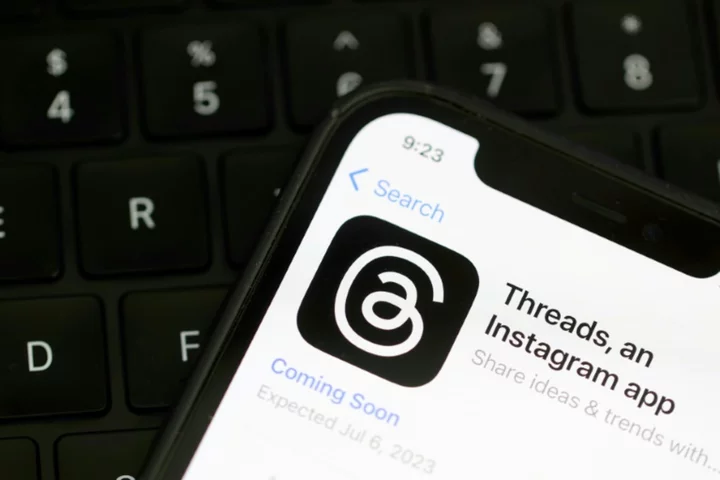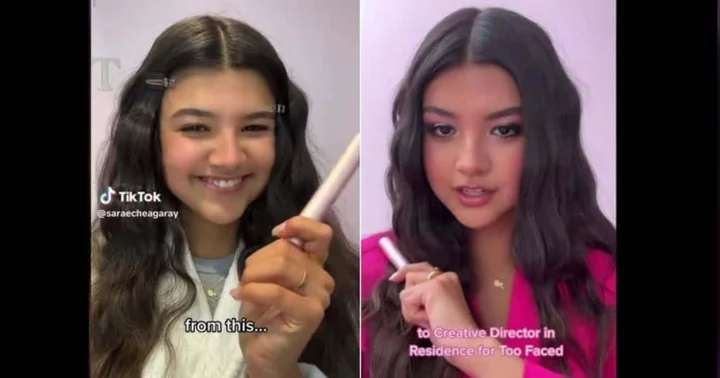Facebook parent Meta on Wednesday beat market expectations for quarterly earnings, powered by a reviving digital ad business.
Meta reported a profit of $7.8 billion on $32 billion in revenue during the recently ended quarter, as the number of people using Facebook monthly rose to 3.03 billion.
"We had a good quarter," Meta chief executive Mark Zuckerberg said in an earnings call.
"We continue to see strong engagement across our apps and we have the most exciting roadmap I've seen in a while..."
Meta had suffered a rough 2022 amid a souring economic climate, which forced advertisers to cut back on spending, and Apple's data privacy changes, which allowed users to block ad targeting, the pillar of Meta's business.
But like the other big US tech companies, Meta's share price has had a stellar 2023 that Zuckerberg in January said would be the "year of efficiency".
"With two straight quarters of positive revenue growth and the first quarter of double-digit revenue growth since late 2021, Meta’s year of efficiency is off to a strong start," said Insider Intelligence analyst Debra Aho Williamson.
"There's a lot to feel good about when it comes to Meta right now," Williamson added.
Meta shares were up more than seven percent $320.32 in after-market trades.
In its earnings release, the company said that the number of ads on its various applications rose by 34 percent year-on-year in the second quarter.
Analysts noted the greater interest from advertisers in Reels, the video format copied from TikTok, and a less gloomy economic context conducive to marketing spending.
Meta is seeing "good progress" in bringing in money from Reels, with the video snippets played more than 200 billion times daily across Facebook and Instagram, Zuckerberg said.
- VR costs -
Meta's vow of austerity on spending brought an unprecedented round of cost-cutting that has seen the company lay off tens of thousands of workers since last November.
Meta said it had 71,469 employees at the end of June, a decrease of 14 percent from the same time a year earlier.
The company has faced criticism over its gamble on the metaverse, the world of virtual reality that Meta believes will be the next frontier online and led it to change its name from Facebook in 2021.
This to date has proved to be a bad bet with customers so far unenthused by the technology, even though Apple will enter the space sometime next year with the release of its expensive VisionPro headset.
Zuckerberg referred to the lackluster rate at which people are embracing the metaverse as a "somewhat sobering signal" but he remained confident it is a computing platform of the future.
The metaverse and AI remain priorities at Meta, according to Zuckerberg.
Meta said in the earnings report that it expects its operating losses at the unit responsible for VR to "increase meaningfully" in the year ahead.
The company has also jumped to take advantage of the chaos at Twitter, which has now been renamed to X.
Earlier this month Meta rushed out the release of Threads, a text-only app that saw more than 100 million downloads in just days, though the users' longterm interest remains unproven.
"We saw unprecedented growth out of the gate and, more importantly, we're seeing more people coming back daily than I'd expected," Zuckerberg said of Threads.
"Now we're focused on retention and improving the basics; I'm really happy with the path that we're on here."
On AI, Zuckerberg has chosen a different track than Microsoft and its partnership with OpenAI.
Meta instead has endorsed a more "open source" approach and made its Llama generative AI technology available to researchers and companies to adapt to their own needs.
Investors are keen to see how Meta expands use of generative AI in its products, questions on the earnings call showed.
Zuckerberg indicated in a recent podcast that his company is working on an AI platform that would allow creators and advertisers to more efficiently work together.
gc-arp/caw









